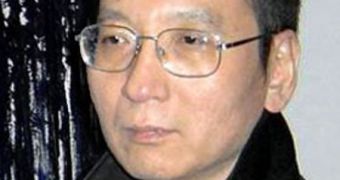The Nobel Committee announced on October 8 that the 2010 Nobel Peace Prize goes to renowned Chinese dissident Liu Xiaobo, who is currently incarcerated in his homeland.
The award was bestowed on him for his “long and non-violent struggle for fundamental human rights in China. The […] committee has long believed that there is a close connection between human rights and peace.”
At this point, the Nobel Prize recipient is serving an 11-year sentence in China, after being accused and put to trial for incitement to subvert state power. He is probably unaware he has won the award.
According to sources, it would appear that the Chinese government stopped the transmission of both BBC and CNN in the country after the announcement was made.
Authorities in Beijing also had harsh words for the Committee and Norway. Officials said that relations between the two countries will undoubtedly be harmed by this decision.
“Liu Xiaobo is a criminal who has been sentenced by Chinese judicial departments for violating Chinese law,” the foreign ministry in the country said in a statement after the announcement was made.
It adds that the decision “runs completely counter to the principle of the prize and is also a blasphemy to the peace prize.”
But the Committee chairman, Thorbjoern Jagland, said that the Asian nation needs to realize that, as it develops into a major world power, it will be subjected to a lot more criticism and scrutiny by the rest of the world.
“We have to speak when others cannot speak. As China is rising, we should have the right to criticize […]. We want to advance those forces that want China to become more democratic,” he said.
Nobel peace laureate Desmond Tutu and Václav Havel, the former Czech president, both supported Liu in the race to win the prestigious award, for his “unflinching and peaceful advocacy for reform.”
Chinese philosopher Xu Youyu, a professor at the Chinese Academy of Social Sciences authored a moving letter of support for Liu, addressed to the Committee. You can read it here.
“Liu Xiaobo's involvement in the 1989 democracy movement illustrates his transformation from an eminent cultural critic to public intellectual concerned with social and political problems and human rights activist,” Xu Youyu says.
The Chinese dissident was imprisoned for participating in the 1989 Tienanmen Square student riots, when pro-democracy forces were ruthlessly attacked and dispersed by the military.
He was sentenced to 11 years of prison, and has also served three years of slave labor in a concentration camp in the 1990s.

 14 DAY TRIAL //
14 DAY TRIAL //